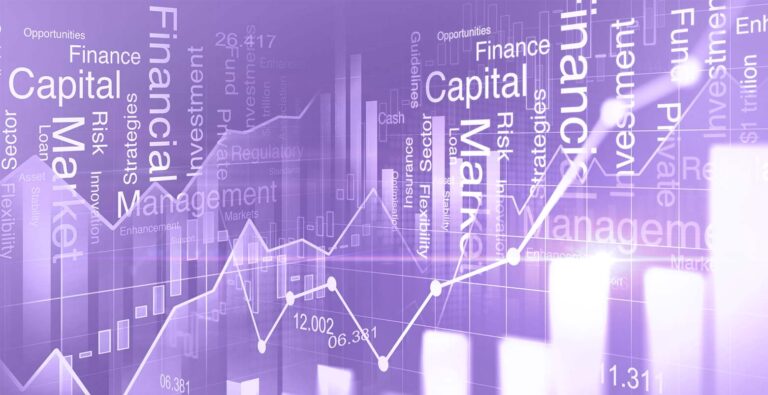On 13 September 2023, the Loan Market Association (LMA) co-hosted an LMA Regional Early Evening Seminar (the Seminar) with Brown Jacobson LLP1. The Seminar was introduced by Hannah Vanstone, Senior Associate Director – Legal at the LMA, and featured a panel chaired by Paul Ray, Partner at Browne Jacobson, who was joined by Stephanie Wall – Sustainability Director at Palatine Private Equity2 and Zara de Belder – Associate Director in the Transactions & Sustainable Finance team at sustainability advisory and solutions firm, Anthesis3.
This article covers a number of key points which were addressed at the Seminar, including the key challenges that face small and medium-sized enterprises (SMEs) in this space, the importance of supply chain finance (SCF) and of approaching the ‘Social’ aspects of ESG as ways to drive engagement with sustainable finance products.

The importance of the SME market
SMEs account for around 50% of the UK’s private sector turnover in 2022 4 and represent 99% of all businesses in the EU 5. Although small businesses often have relatively low emission footprints at the individual level, it is estimated that in total SMEs account for around half of UK business greenhouse gas emissions 6. It is therefore vital that SMEs are not left behind if global economies are to transition to sustainable economies.
However, despite their large market share, there are various existing factors that may limit the ability of SMEs to access sustainable finance products, meaning that some of the businesses most in need of transition may not be able to access the finance required to do so.
So what are the barriers to entry in the mid-market?
One of the key issues for SMEs looking to come to the sustainable finance market was said to be a lack of time and standardised resources and guidelines. Whilst large companies often have sophisticated sustainability strategies in place and dedicated sustainability teams, SMEs often do not in practice. This is where investors and lenders can help by providing guidance, introducing sustainability expertise, and assisting SMEs as they advance on their sustainability journey.
A wave of regulation – including the Corporate Sustainability Due Diligence Directive (CSDDD) and the Corporate Sustainability Reporting Directive (CSRD)7 – is also adding further pressure on SMEs due to an increase by mandating sustainability reporting requirements to provide stakeholders across the value chain with consistent and transparent data. This can be overwhelming for SMEs starting out on their sustainability journey as they struggle to report on a range of topics such as environmental rights, social rights, human rights and governance factors.
A further challenge faced in the mid-market – specifically in relation to sustainability-linked loans (SLLs) – is that the resources, time, and cost required for external verification to take place often outweighs any economic or other perceived benefit of entering into an SLL. The complexity of selecting key performance indicators (KPIs) and calibrating sustainability performance targets (SPTs) may also be putting SMEs off these structures, particularly in the current higher interest rate environment where speed of refinancing is often a priority. Accordingly, SMEs often do not enter into SLLs because they do not see the benefit of accessing sustainable finance products over vanilla financing structures.
Overcoming the obstacles
Market participants are adapting however – finding new and innovative ways to drive transition through finance in the mid-market.
SCF is already being used by OEMs and large corporates as a tool to assess, monitor and drive sustainability within their supply chains. OEMs and large corporates may, for example, be able to access preferential financing rates, and on-lend to SMEs through SCF where suppliers meet specified ESG criteria.
Large corporates and OEMs may also drive ESG standards down their supply chain through their Scope 3 emissions targets. For example, large manufacturers may ask their component suppliers/ manufacturers to initiate decarbonisation plans and commit to transparent ESG reporting. By engaging with suppliers in this way, OEMs can help to align their suppliers with their goals in order to achieve their overall climate commitments and reduce their scope 3 emissions, whilst at the same time incentivising SMEs to engage in sustainable activities.
In relation to sustainability-linked loans, those SMEs that have already proactively engaged with sustainability and invested in developing a strategy or ESG resource will be better equipped to develop KPIs and SPTs that are strategically tied to their ESG strategy and wider business model. Increased standardisation of KPIs and benchmarks for setting SPTs against could however also help to reduce the time and cost of negotiating a sustainability-linked loan for SMEs. A focus on social rather than environmental data, such as emissions, may also lead to further uptake of the sustainability-linked loan product in the mid-market. This is because environmental data can be relatively harder for SMEs to collect and collate. Social data may, however, already be captured in the ordinary course of business (for example, details of the gender and ethnic diversity of their workforce). Nevertheless, under the CSRD, firms will have to report on both environmental and social risks.
Further, tailored support for SMEs, including SME-specific resources, is needed in order for the sustainable finance market to grow in the mid-market. Engagement on sustainability issues is increasingly attractive to investors and there is even some evidence of a ‘greenium’ emerging in the market on exit for businesses that have engaged with sustainability. Some mid-market participants are already aware of such benefits, perhaps due to customers increasingly pushing for sustainable products. Making available suitable SME-specific resources and appropriate guidance in addition to promoting the benefits of sustainability is key to facilitating sustainable finance in the mid-market. The EU SME Relief Package8 is an apt example of SME-specific support – with the European Commission setting out a range of measures to provide SMEs with short-term relief and boost long-term competitiveness.
Finally, as mentioned above, increased collaboration and knowledge sharing is needed to bring the mid-market along on the sustainability journey. A growing focus on ESG is evident through the core pillars of participants in the mid-market, such as private equity firms and lenders, that seek to align their portfolio companies to their own sustainability commitments. Regulation such as the CSRD and CSDDD will further drive requests for ESG information reporting by SMEs. They do so through knowledge sharing, supporting companies on their sustainability journey and by setting sustainability criteria for access to certain types finance, such as impact funds or labelled sustainable lending products.
Summary
The time, cost, and resource burden associated with sustainable finance products can act as a disincentive towards the uptake of sustainable finance products in the mid-market. However, there are a number of ways in which the mid-market is already innovating and helping to channel capital towards much-needed transition activities. Market participants, such as investors, OEMs and lenders, have already started supporting SMEs on their sustainability journey and providing unique financing solutions, including through SCF. Evolving regulation has also become much more stringent, forcing many companies under the CSRD to report on sustainability – driving uptake in sustainable finance.
For those that are able to innovate in the mid-market, engage on key sustainability issues and align their business strategy and corporate values around key ESG topics, there are real opportunities to be seized. In this sense, sustainability and commercial interests of market participants in the mid-market should be seen as interconnected, rather than distinct parts of the wheel.

- https://www.brownejacobson.com/
- https://palatinepe.com/
- https://www.anthesisgroup.com/
- https://www.fsb.org.uk/uk-small-business-statistics.html
- https://single-market-economy.ec.europa.eu/smes/sme-definition_en
- https://www.british-business-bank.co.uk/research/ smaller-businesses-and-the-transition-to-net-zero/
- https://finance.ec.europa.eu/capital-markets-union-and-financial-markets/ company-reporting-and-auditing/company-reporting/ corporate-sustainability-reporting_en
- https://www.icaew.com/insights/viewpoints-on-the-news/2023/sep-2023/commission-unveils-relief-package-for-eu-smes




